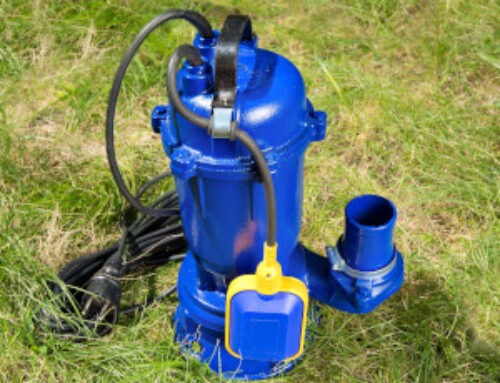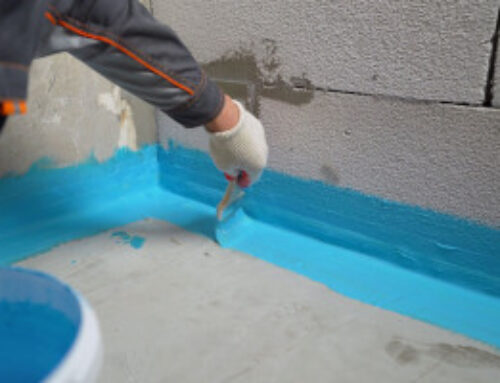Owning a home certainly has plenty of upsides, but when a sudden emergency arises, you’re left to handle it on your own, and it can be difficult to determine what to do. Before you make any rash decisions, take a deep breath and figure out whether your insurance policy will cover the damage.
What does insurance cover when your basement floods, in particular? Here’s a closer look.
The Importance of Reviewing Your Policy Before Water Gets In
Discovering your basement has flooded is never a good thing. Realizing that you have no idea whether the ensuing water damage is covered by your insurance, though, is even worse.
If you’re left asking yourself, “What does insurance cover when your basement floods?” and failing to nail down a definitive answer, you should take a moment to look over your policy as soon as possible.
Many people’s first instinct when they see a flooded basement is to rush to get it fixed, and though that’s understandable, thoroughly documenting the problem before repair is essential if your insurance covers the damage.
Flood Provisions in Typical Homeowners Policies
Unfortunately, most standard homeowners’ insurance policies do not cover flooding. Home insurance companies did cover such damage until 1968, when it became clear that the massive damage from flooding was too much for private insurers to cover.
That same year, the National Flood Insurance Program (NFIP) was created, a federal program that aims to reduce future flood damage and help Americans secure flood insurance for their homes and other properties.
However, it’s critical to note that policies vary from state to state and company to company, and you shouldn’t ever make assumptions about what your policy will and will not cover.
As such, if you’re wondering, “What does insurance cover when your basement floods?” you should take a close look at your policy, and if you have remaining questions about coverage, contact your insurance agent.
The Difference Between Water Damage and Flood Damage in Policies
In some cases, determining the answer to “What does insurance cover when your basement floods?” involves a more complicated process than you might think.
And that’s primarily because home insurance companies treat “water damage” and “flood damage” as two separate terms.
Water damage, which often originates from plumbing issues, is covered. Flood damage, which usually comes from heavy rain or another kind of natural disaster, is not.
In other words (and in most cases), damage from water that comes from within your home will be covered, and damage from water that comes from outside will not.
Effects Often Covered by Homeowners Insurance
Before you file an insurance claim for basement flooding (or assume that doing so would be futile), take a moment to try to determine the cause of the situation.
There are two main situations in which your homeowners’ insurance might prove helpful.
If your toilet, washing machine, or other appliance suddenly leaks or overflows, your home insurance will likely cover both water damage to your basement and damage to any personal property in your basement.
Similarly, if a pipe bursts and causes a flood in your basement, your homeowners’ insurance will probably pay. There is a caveat here, though: Homeowners’ insurance policies generally don’t cover damage from neglect, so if the pipe had pre-existing problems you didn’t address, you might need to pay out of pocket.
Basement-Specific Coverage Limits
Paying to repair a finished basement with flooring, drywall, and new furniture will be much more expensive than paying for minimal water damage to a bare, unfinished space. As a result, some homeowners’ insurance companies will set coverage limits based on factors such as:
- Whether the basement is finished or unfinished
- The types of materials used (if the basement is finished)
- The total value of items stored in the basement
Many people purchase homes with unfinished basements and finish them later. If you have done so, make sure you let your insurance company know!
What Is Not Typically Covered by Homeowners Insurance Policies?
While you should always consult your policy, these are some examples of basement flooding that is generally not covered:
Groundwater Damage
If the soil around your home is very moist, it can lead to the accumulation of excess groundwater. On a day-to-day basis, that groundwater isn’t likely to seep into the basement.
However, heavy rain and thawing snow can oversaturate the soil, and the increasing hydrostatic pressure beneath your home’s foundation can force groundwater in via cracks.
If you quickly repair cracked or bowed basement walls and waterproof your basement as needed, you’ll be less likely to face these particular issues.
Sewage Backups and Sump Pump Overflow
Most standard insurance policies do not cover damage from drain or sewer backups or overflowing sump pumps. However, you may be able to purchase a policy add-on that does provide coverage for these events.
Damage Due to Poor Maintenance
Home insurance isn’t meant to be a substitute for maintenance; if your insurer determines that the flooding in your basement could have been prevented by proper maintenance of your home, they will likely deny coverage.
What Is Covered by Flood Insurance?
Your home insurance company may not offer flood coverage, but you still may be able to purchase separate flood insurance. Just like with any insurance policy, though, you should review flood insurance policies very carefully before making a purchase. Even if one is available, it may not offer all of the coverage you want.
If you already have flood coverage, though, you may still wonder, “What does insurance cover when your basement floods?” Many flood insurance policies specifically exclude damage to underground spaces in your home.
If you have one of these policies, it would cover damage to the upper floors of your home, but not damage to your basement.
How to Document Damages and Prepare a Strong Claim With Your Insurer
As we’ve established, if you aren’t sure what your insurance covers when your basement floods, you should review your policy as soon as reasonably possible to find out.
At the same time, though, you shouldn’t make the mistake of assuming that just because your insurance covers your specific type of water damage means your claim will be automatically accepted.
Insurers are always looking for any reason to deny claims to reduce what they have to pay out, so you should do what you can to avoid denial.
How to Avoid a Claim Denial
Thoroughly documenting the damage is one of the most important steps to take to keep your claim from being rejected. Don’t just snap one or two photos, either; multiple pictures from different angles will go a long way toward supporting your claim.
Insurers will also insist that you take steps to mitigate the damage. In other words, alongside pictures of standing water, your insurance provider will also likely want to see that you have done your best to remove it.
Navigating the insurance process is stressful and confusing, but the team at Crossroads Foundation Repair has helped countless homeowners handle things, and we would be happy to offer our insights to you as well.
Preventative Measures Can Help to Support Flooding Claims
Even if your insurance company covers some kinds of water damage to your basement, they are likely to closely scrutinize your claim. If you have taken preventive measures to reduce your flooding risk, it may help the insurer understand that your current water damage is not due to a lack of maintenance.
Here are six examples of important steps you can take:
- Repairing cracked or bowed basement walls
- Filling cracks in your foundation
- Waterproofing your basement
- Installing a drainage system
- Promptly dealing with potential sewer line issues
- Grading your lawn (so water flows away from your home)
Which steps are most important will depend on your home and its specific risk profile. Our team can suggest some of the best proactive steps to protect your home, your family, and your belongings.
FAQ
Understanding Your Coverage and Getting the Right Support Along the Way Can Give You Peace of Mind
Having your basement flood is never a positive experience. However, you can significantly lessen your stress when you know the answer to “What does insurance cover when your basement floods?” and when you already know who to call to fix the issue.
Crossroads Foundation Repair is proud to be able to help Indiana homeowners repair foundation cracks, fix sinking foundations, and waterproof their basements to prevent further issues.
Whether you’re dealing with an existing problem or want to prevent one from happening, we’re here for you. Get in touch today for your free estimate!





